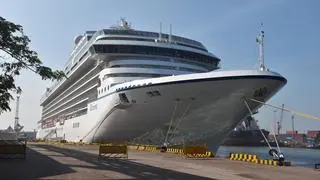‘Inadequate data' was a major problem in carrying out the review of Tariff Guidelines 2005 at major ports.
The Shipping Ministry mandated The Energy and Resources Institute (TERI) to review the guidelines.
The institute recently submitted its report, which is available for stakeholders' comments.
“Despite efforts made by TERI, data was not furnished by relevant stakeholders or the data furnished was not adequate.
“The inadequate availability of data was a major problem in carrying out the study and the development and validation of norms,” the institute said in its report.
Data constraints
Data constraints also made it difficult for the institute to establish the formula for determining the optimal capacity for coal, iron ore and multi-purpose terminals on the basis of the actual civil assets created and equipments deployed.
The study was largely based on a critical review of the 2008 guidelines, a detailed analysis of various tariff orders issued by the Tariff Authority for Major Ports, the limited information received from some ports and the views expressed by the stakeholders.
critical analysis wanted
The Ministry wanted the institute to ‘critically' analyse the existing 2005 guidelines and develop a normative cost-based tariff using the approach of the 2008 guidelines.
However, as the proposed guidelines provide for tariff fixation on the basis of the physical assets actually created and the costs incurred, the study would have been greatly facilitated if data in respect of the existing terminals was available.
The study has revealed that there are vast differences in the investments made, capacities created and operating costs between private terminals and major ports.






Comments
Comments have to be in English, and in full sentences. They cannot be abusive or personal. Please abide by our community guidelines for posting your comments.
We have migrated to a new commenting platform. If you are already a registered user of TheHindu Businessline and logged in, you may continue to engage with our articles. If you do not have an account please register and login to post comments. Users can access their older comments by logging into their accounts on Vuukle.